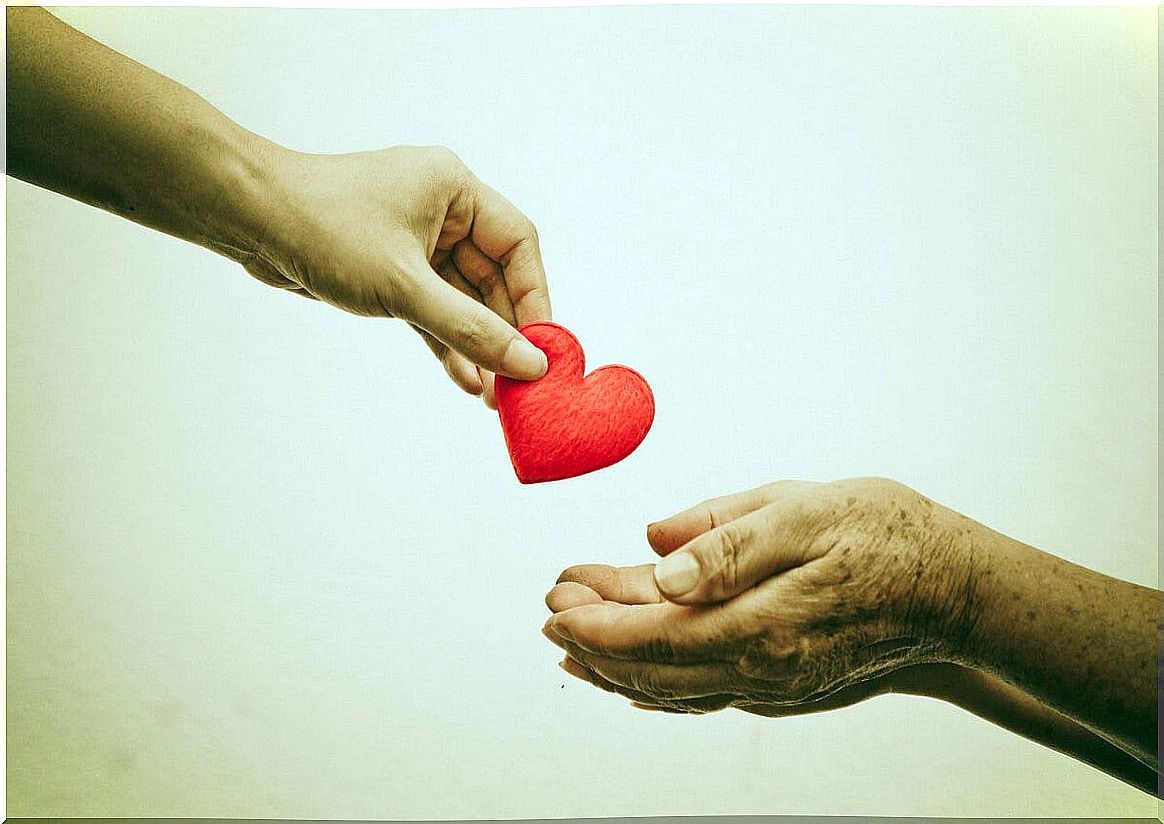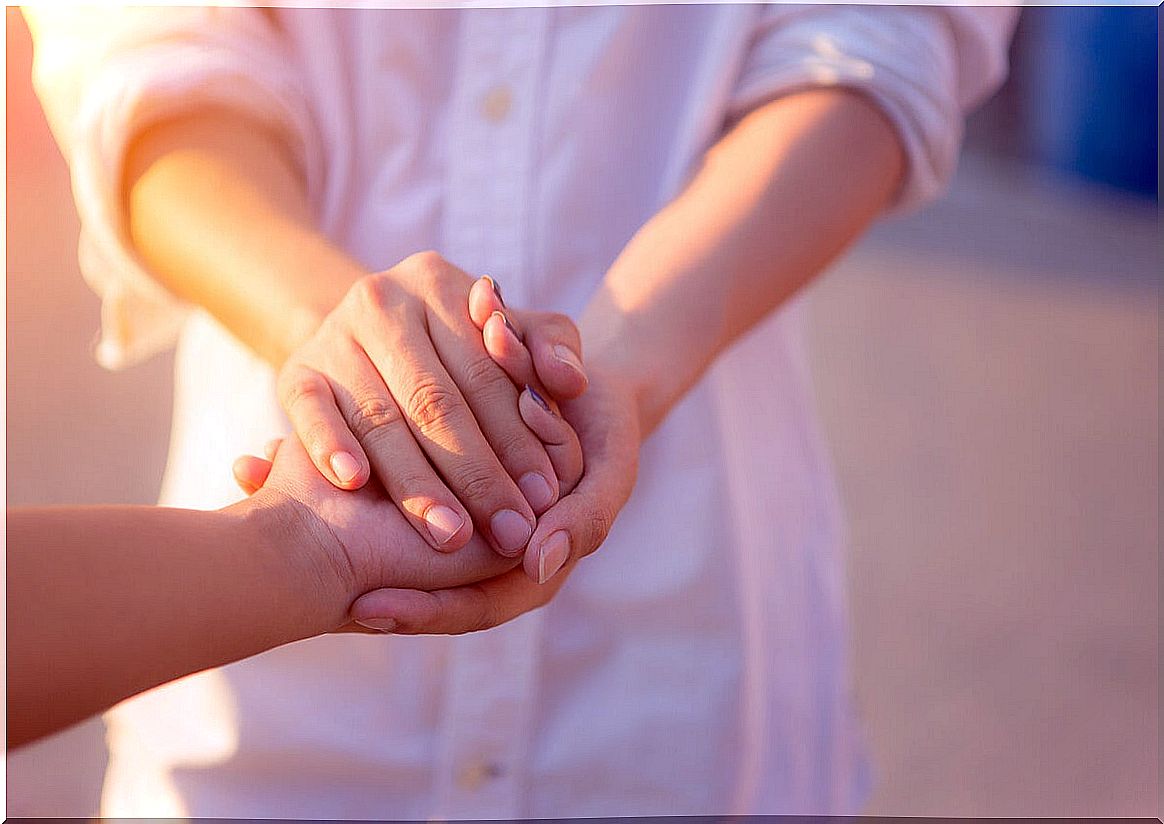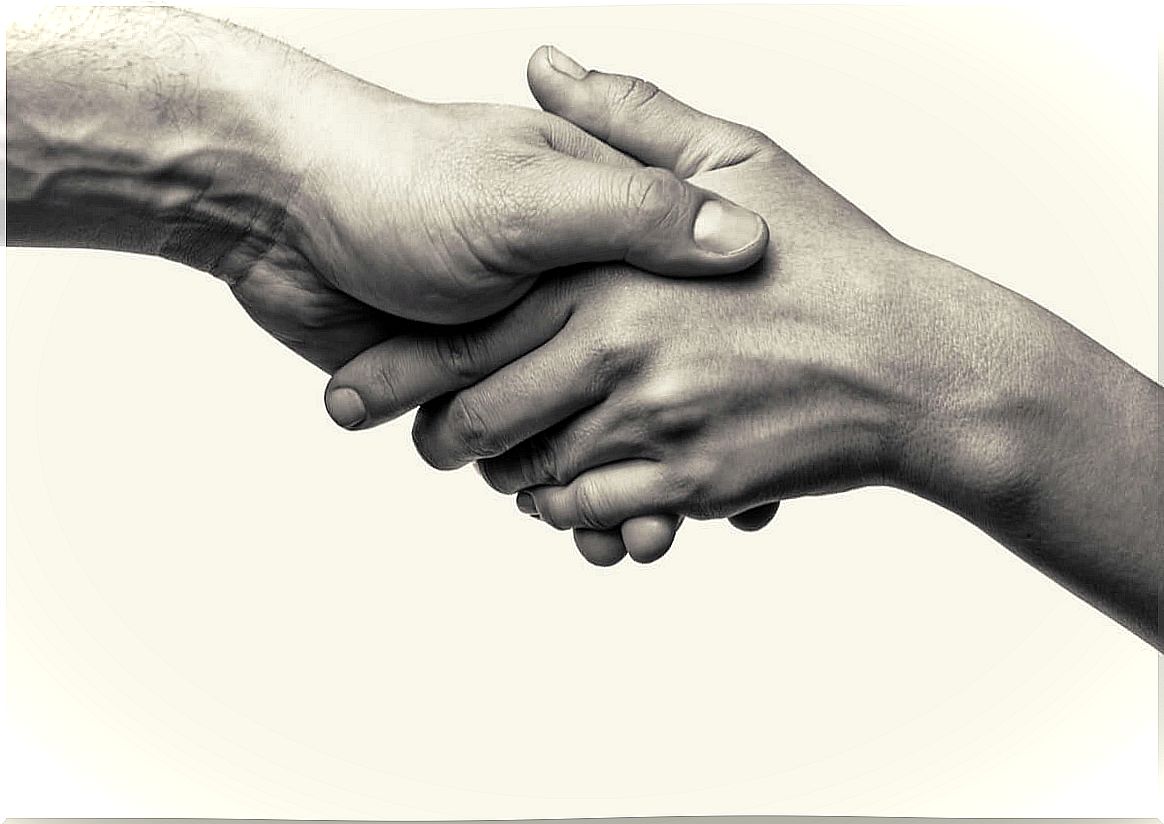Do We Help Out Of Empathy Or Out Of Anxiety?

When we help a relative, a friend or a stranger on the street, we feel altruistic and kind. Going on behalf of a person in need makes us believe that we are better people, with high values and high morals. Likewise, when we refuse to help we feel selfish; and in the same way we judge those who refuse to offer their support to others. But what if the helping behavior weren’t exactly a selfless act?
Have you ever stopped to think about what are the hidden motivations behind your desire to help and be generous with others? Are you sure that you are always moved by emotions of understanding and empathy? What if the desire to contribute to the well-being of the other person was not the reason for your solidarity? Certain investigations explore these approaches, reaching interesting conclusions.

Do we help out of empathy or anxiety?
The prosocial behaviors emitted by humans have been the object of study and research for decades. Why do we help? Are we born with this predisposition or is it a cultural learning? These and other questions in this regard have been studied and debated by numerous authors.
It has been proven that, at the brain level, observing another person suffering activates the same neural networks involved in the processing of pain in the first person. That is, to a certain extent we are capable of experiencing the pain of others as our own.
But what exactly do we feel in such situations? The hypothesis that seems to have the most empirical support is the one that states that, faced with the vision of a person in need, we can react in two different ways :
- On the one hand we can react with anguish, disgust, concern or horror before the situation of the other.
- On the other hand, we can experience compassion and understanding, we can feel genuinely moved.
The fact that one or the other feelings are awakened will depend on various factors. In the first place, of the concrete context of suffering in which the individual finds himself, but also of the personal disposition of the person observing it. Faced with the same event, two people can have different reactions; and the same individual can react differently to two situations of other people’s pain.
What is our motivation?
Whatever the case, whether it arouses anguish or compassion, we are likely to help those in need. However, the motivations in each case will be very different.
When we experience alarm, disgust, or worry, our pattern of action is selfish; that is, we help the other to alleviate the discomfort caused by seeing them in distress. On the contrary, if we feel moved, we will act under a truly altruistic motivation, aimed at alleviating the suffering of the other and not our own.
This reality was found in several studies carried out with university students. In them it was found that the type of help pattern that was put in place depended on the feelings experienced. That is, in those who activated anxiety, they acted under the motivation to reduce it and in those who activated compassion and acted with the aim of reducing the need of the other.
We cannot choose what type of response awakens in us, so we cannot affirm that one of the groups is more or less supportive than the other on a moral level. In addition, an interesting fact occurred in one of the studies: when helping had a high personal cost, those who tended to have genuine empathy showed a selfish pattern of acting. It seems that the fact that there was a personal sacrifice nullified the initial altruistic impulse.

Are we caring beings?
These findings increase the ever-existing ambiguity regarding the question of the degree to which human beings are truly caring, altruistic, and generous. We already knew that, on many occasions, helping gives us a feeling of gratification; But now we also know that it is possible that we also help to avoid our own discomfort.
So, with our own feelings so involved, is it possible to affirm that concern for the other really moves us? In any case, and whatever the latent motivation, prosocial behaviors are beneficial. They help those who receive them and, it seems, on many occasions also those who carry them out. For this reason, it is important to continue promoting them for a more satisfactory social coexistence.








